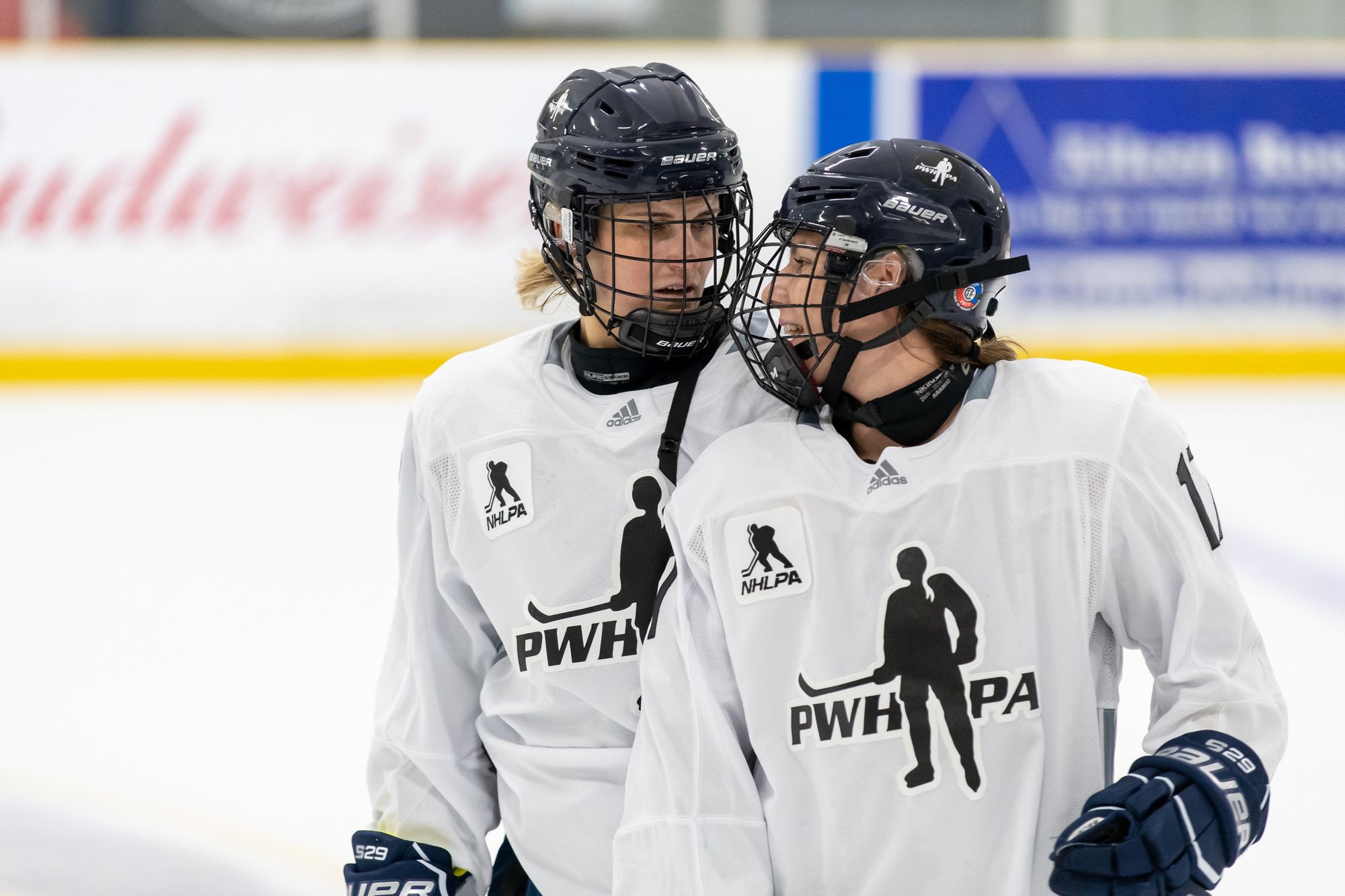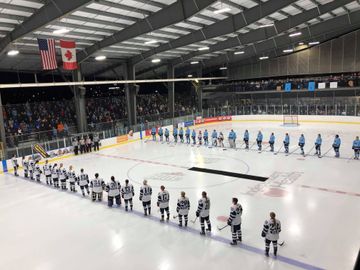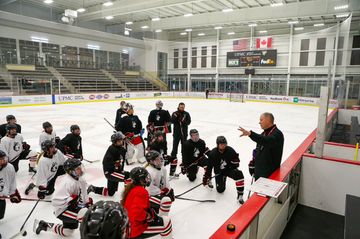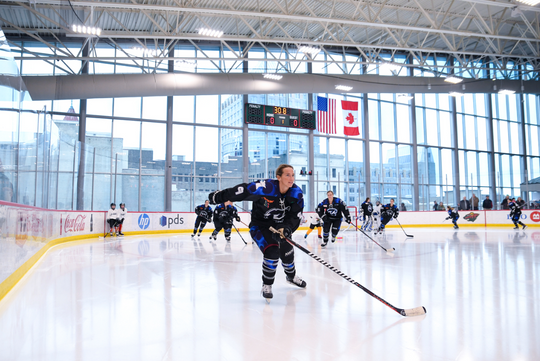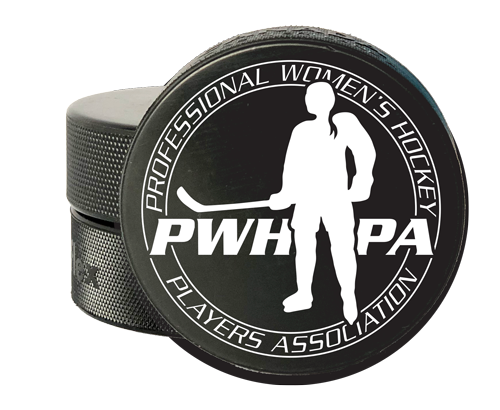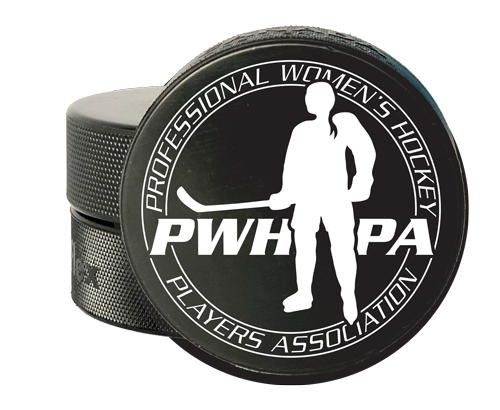As players representing Minnesota, many of them well-known U.S. Olympians, were introduced ahead of a match against the home side from Montreal on Saturday, the crowd at Place Bell ― officially tallied at 3,267 ― cheered. Perhaps it was in part the name, pronounced in its original French, but the applause only got louder when the announcer reached Jocelyne Lamoureux-Davidson, who's best known for being resented by your average Canadian hockey fan and for crushing local hopes and dreams in Pyeongchang. Not so long ago, this kind of support for rivals who remain opponents would've been difficult to imagine.
"I think the fans are just engaged and they're engaged with what we're doing, and they want to see the success of the league," commented Hilary Knight. "It's way bigger than favorites and the home crowd, and I hope we can get back to the favorites and the home crowd once we establish it."
As gratifying as it's been to see fans express support for players across the PWHPA, as 2019 comes to an end attention is turning from the necessary basics of building a movement ― establishing the PA, arranging events, developing partnerships ― to a wholesale focus on generating a suitable league, rivalries included.
"I mean, it's fine for now," said Lamoureux-Davidson of the PWHPA's schedule, adding that as someone who could never justify relocating for the CWHL and NWHL's inadequate offerings, she's getting more games than in the past. "But we definitely need something more established in the near future."
Montreal won 4-2 on Saturday, and Minnesota took a 2-1 victory in Sunday's rematch, on the back of a stellar performance by goaltender Ann-Renée Desbiens. The games were just the second and third between two elite women's hockey teams in the region this season, and the first to be held in a widely accessible venue. Though the Montreal PWHPA chapter has faced off against an array of teams featuring university women, club boys, and CÉGEP men, those games inevitably lack the competitive fire of a familiar opponent.
"We know those girls, we know what to expect," said Melanie Desrochers of suiting up against the Minnesotans. "There's a little bit of history with all these players, so I think the intensity is just different."
It's that intensity that they'd like to see restored on a weekly basis, in an environment that allows them to thrive.
"Personally, I miss having a cup at the end and being able to prepare the team for a championship and for the playoffs," acknowledged coach Caroline Ouellette. "It makes me hurt for them, because I absolutely loved hockey ― there was nothing I'd rather have been doing ― but one of my biggest drivers was that I wanted to win the cup at the end. Every practice was for the cup and to be better; to be better as a team, to be better with my linemates to help the team. Now we've lost that a little, and my heart breaks for the girls."
Despite the challenges, Ouellette adds, players have continued to show up to practices religiously. There may not be a season to build through or a title to win, but everyone is eager to participate. She appreciates their devotion and love for the game, but says it still pains her to see them in this situation.
"It's the aspect of elite sport that is to compete with the best that we're lacking, and that's unacceptable," she said.
After an intermittent schedule during the fall, the second half features a much steadier stream of games. The PWHPA has even had to turn down invitations as they begin to run out of available weekends.
"It was kind of like the excitement started a bit too late," said Karell Emard, explaining that planning gained momentum after the Unifor Showcase in Toronto, with a number of prospective hosts reaching out.
The busier schedule and support from NHL teams is very welcome, but the current format remains far from the end goal. Moving forward, the priority is building towards a genuinely professional league so that players aren't forced to juggle multiple jobs, or to abandon the sport altogether because they can't afford to keep going.
"We're going to be patient and wait for great things," Knight said.
For Desrochers, who initially retired upon graduating college because continuing in hockey didn't seem like a feasible path, it doesn't much matter if people know her name. What matters is that they understand her story, and the fact that it’s not hers alone.
"It's important to know that you lose talent every year there's no league," she emphasized, citing her own experience ending her career at 21. "I know I didn't peak at 19, you know? It's important that people understand that there's a strong group of girls that can continue to play and that they need a spot to play. It's really important people know that there's more than the national team."
Desrochers has never been part of the Hockey Canada program, but she points out that they and their counterparts also lose out from the lack of a viable option for post-collegiate players. "It's unfortunate for just the state of women's hockey and the national programs, because you limit your pool of who you get to choose from," she notes. If players are being filtered as teenagers and many are compelled to retire before their prime, there's no knowing what could have been. And as much as current national team stars have utilized their platforms to become spokespeople for the PWHPA's goals, it's those graduating players who quietly disappear from the scene each year that perhaps have the most to gain from its mission.
"So many men worldwide can make a living playing hockey," said Ouellette. "No woman has that privilege, if we talk about a hockey salary."
Just as it was ten years ago when the head of the International Olympic Committee was threatening to remove the sport from the Games, women's hockey enters the new decade at a critical juncture.
Lamoureux-Davidson invoked tightening scorelines at the U18 Women's World Championship as a phenomenal sign of on-ice growth, and players at that tournament ― who, at the pinnacle of their young careers, have already come face-to-face with just how undervalued the women's game is ― have pointed to the PWHPA and their own desire to carry on its aims. Knight spoke excitedly about trick videos young girls are posting to social media, and their ability to transfer those skills to game situations at early ages. When it comes to the sport itself, women's hockey has developed tremendously over the course of the past decade. It'll only continue to grow, so long as girls and women are given the opportunity to excel. Making sure that can continue past the age of 22 is crucial.
"It's just having the resources so people can be hockey players," Desrochers said. "That's all it is."
(Photo credit: Anne-Marie Pellerin)
